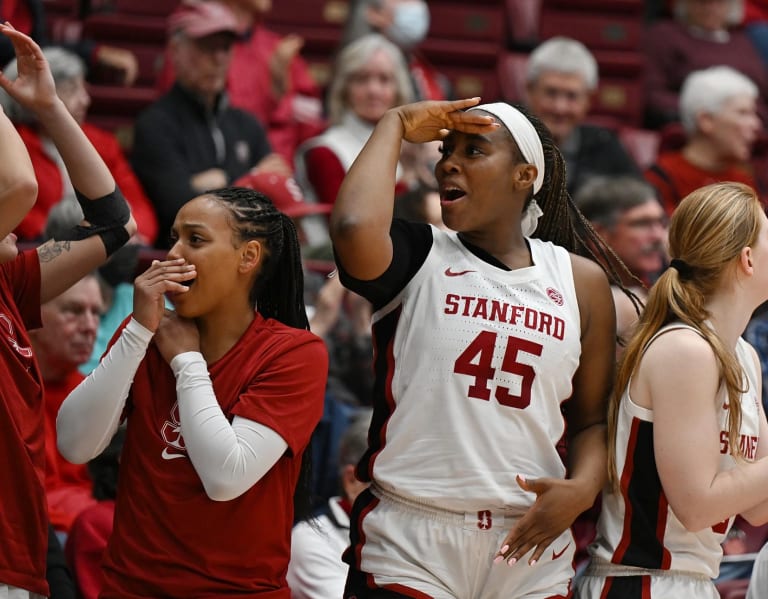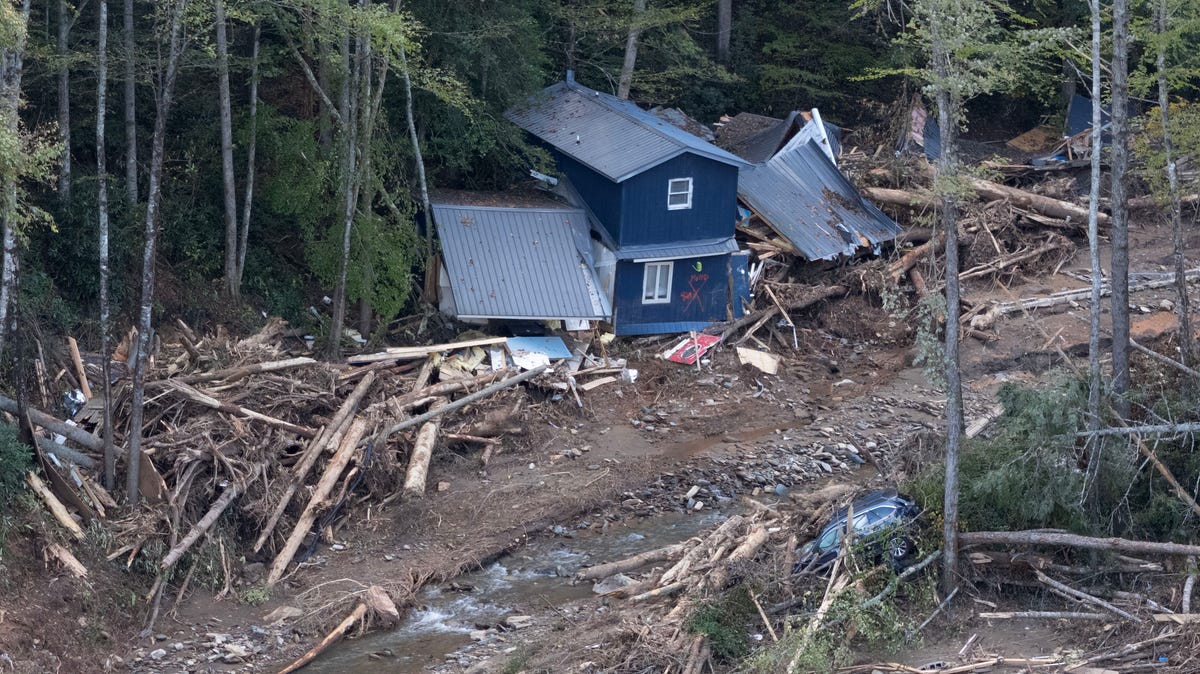North Carolina
Cherokee tribe in Western NC to vote on expand legalization of adult use of marijuana

CHEROKEE, N.C. — Members of the Eastern Band of Cherokee Indians will vote in September on whether they want to legalize marijuana possession and sales on tribal lands for anyone 21 and older – not just for those seeking it for medical use that the North Carolina tribe had already authorized.
The Tribal Council agreed last week to place the question on the ballot during the tribe’s Sept. 7 general election.
In 2021, the tribe decriminalized possession of small amounts of marijuana within the Eastern Band’s 57,000-acre (23,000-hectare) Qualla Boundary. It also formed a medical marijuana structure that includes a tribe-created business to grow cannabis and sell it in a large dispensary that remains under construction – making it the first and only place to legally purchase marijuana in North Carolina.
The original plan was to issue medical cards for eligible adults to purchase from the dispensary. If the expansion of sales is approved in a referendum, it’s unclear whether such cards will be needed. Tribal leaders suggested approval of the referendum question will lead to recreational marijuana sales, The Charlotte Observer reported.
“If our voters say no, they don’t want adult use, then let’s fly in there and get that medicinal,” Council member Teresa McCoy, who offered the resolution last Thursday, told council colleagues. “If they say they do want adult use, then move forward. It’s that simple. I’m not for or against it.”
The dispensary was supposed to open by the fall, although that came into doubt after Eastern Band Principal Chief Richard Sneed vetoed $64 million in additional funds toward the project this spring.
The dispensary, to be located in the tribe’s old bingo hall near Harrah’s Cherokee Casino Resort, initially will be open to tribal members only but would expand to other residents later, the Observer reported. As for medical marijuana, medical cards needed to purchase products also will be issued to tribal members initially. Card applications from all North Carolina residents are now being accepted.
Forrest Parker, general manager of Qualla Enterprises LLC, which was formed to run the tribe’s for-profit cannabis business, told council members that permitting adult use would mean more customers and revenue for the tribe.
“Think how many more people will walk through the door,” Parker said. “Fundamentally, we’re prepared to handle it.”
Council member Michael Stamper voted against putting the referendum on the ballot. He questioned whether the tribe could handle the expected influx of buyers.
“Right now, we’re having issues funding the medical portion of it,” Stamper said. “But I do fear that the immense support to push to get us into a deeper market that we don’t really have the financials to support right now, would be overwhelming and could cause some fiscal issues down the road.”
The referendum question also would mandate the council to develop legislation to regulate the broader market.
The federally recognized tribe has about 14,000 members, while 9,600 people live on Qualla Boundary, located about 50 miles (80.5 kilometers) west of Asheville.
An effort at the North Carolina legislature to legalize marijuana for medical use statewide has idled this year in the state House. The state Senate has approved the idea twice since June 2022.
The attached video is from previous story
RELATED STORIES
A journey to Cherokee, the sovereign nation in N.C.
RELATED | Cherokee fight to preserve native language, culture

North Carolina
Preview: Stanford WBB welcomes No. 15 North Carolina to Maples

On Sunday at 12:00 PM PT on The CW, Stanford women’s basketball will welcome No. 15 North Carolina to Maples Pavilion. Stanford comes in at 11-9 overall and 3-6 in the ACC while North Carolina comes in at 19-4 overall and 7-3 in the ACC.
Last time out: Stanford defeated Pittsburgh at home on Thursday by a final score of 58-46. Elena Bosgana and Chloe Clardy each had 14 points for Stanford.
RECAP: Stanford WBB powers past Pitt
On North Carolina: The Tarheels are having a strong season, coming off a 65-52 win at No. 19 Cal on Wednesday. Their top win of the season is a 53-46 overtime victory over Duke, who is now ranked No. 10 after being ranked No. 14 at the time of their meeting. The most impressive stat of all is the Tarheels are a perfect 5-0 in true road games. They’re not fazed by having to go on the road.
The top two scorers for the Tarheels are graduate student guard/forward Alyssa Ustby (11.4 points & 9.4 rebounds) and senior forward/center Maria Gakdeng (10.9 points & 6.8 rebounds). They’re the only two players scoring in double figures for the Tarheels, but there’s a lot of depth with four additional players scoring 7+ points per game.
When looking at the stats, it’s clear the Tarheels are a defensive oriented team as they hold opponents to 54.7 points per game on 34.8% shooting from the field, 27.7% shooting from 3-point range, and 69.3% shooting from the foul line. They do a great job playing defense both on the perimeter and inside.
As for their offensive stats, the Tarheels average 73.3 points per game on 43.8% shooting from the field, 34.1% shooting from 3-point range, and 65.4% shooting from the foul line. So they do a nice job of scoring efficiently. As for the rest of their stats, the Tarheels average 39.7 rebounds, 15.6 assists, 8.8 steals, 4.5 blocks, and 12.7 turnovers per game. They also average a +3.4 rebounding margin and a +5.7 turnover margin per game.
Keys to the game: For Stanford, the first thing they need to do is take care of the ball. North Carolina makes a living forcing turnovers and making teams pay on the other end. If Stanford can avoid turning the ball over too much, that more than anything will help them win this game.
The second thing Stanford needs to do is find a way to get some threes to fall. They were shooting bricks against Pittsburgh and were lucky that Pittsburgh is not a good team. Stanford has to find a way to get some threes to fall if they are to win this game.
Finally, Stanford needs to feed off the home crowd energy. One thing they are lucky about is they are facing North Carolina on Sunday at noon as opposed to when Cal faced them, which was on Thursday night. Sunday afternoon crowds are always strong and energetic. Stanford needs to feed off that energy and use that to their advantage. This of course means getting off to a good start. If Stanford can win the first quarter, maybe they make this interesting. If they are down big at the end of the first quarter, this one will likely go the Tarheels’ way.
Prediction: I see Stanford putting up a real fight but falling short. North Carolina 68 Stanford 58 is how I see this one going.
CardinalSportsReport.com on Facebook, IG, Threads, X (Twitter), & Blue Sky: @StanfordRivals
Ben Parker on Facebook, IG, Threads, X (Twitter), & Blue Sky: @slamdunk406
Email: slamdunk406@yahoo.com
Join the conversation on CardinalSportsReport.com
North Carolina
Cooper Flagg leads way as Duke blow out North Carolina in rivalry game

Freshmen Cooper Flagg and Kon Knueppel made memorable debuts in the Tobacco Road rivalry as No 2 Duke used a dominant first half to secure an 87-70 win over visiting North Carolina on Saturday night in Durham, North Carolina.
Flagg racked up 21 points, eight rebounds, seven assists and three steals for Duke (19-2, 11-0 in Atlantic Coast Conference play), who extended the longest active winning streak in the country to 15 games. Meanwhile, Knueppel scored 13 of his game-high 22 points in the second half and added five rebounds and five assists.
Tyrese Proctor had 17 points and Sion James 13 for the Blue Devils, who forced nine of North Carolina’s 14 total turnovers in the first half and led by as many as 27 points before intermission.
RJ Davis and Drake Powell each scored 12 points and Seth Trimble netted 10 for North Carolina (13-10, 6-5), who lost for the fourth time in five outings. Duke snapped a two-game losing streak in the series.
Flagg scored or assisted on Duke’s first 18 points of the game. He sank two three-pointers and converted a three-point play while also assisting on a pair of James dunks, plus a triple and a dunk by Proctor.
When Knueppel hit a three and another jumper 31 seconds apart, it capped a 16-0 Duke run for a 23-6 lead less than seven minutes into the contest.
Elliot Cadeau’s three-pointer pulled North Carolina within 16 points before Duke’s defense went back to work. The Blue Devils made the Tar Heels miss their next nine attempts from the floor, two of them swatted away by Flagg. Duke stitched together an 11-point run of mostly free throws for an overwhelming 40-13 lead with 5:16 left in the half.
Flagg’s fadeaway jumper at the first-half buzzer made it 47-25 Blue Devils and gave the freshman 13 points in the half to go with four boards, five assists and two steals.
Duke made its first six shots from the floor of the second half. Knueppel put up 11 quick points as the Blue Devils stretched their lead to 62-34 with 15:49 to play.
Ian Jackson converted a four-point play to give the Tar Heels a brief jolt. But when Flagg knocked down his third three-pointer of the game, it handed Duke their first 30-point advantage of the night at 74-44 with 9:53 still on the clock.
North Carolina cut a 32-point deficit to 16 in the final stages, as Powell gave the team a late boost with all 12 of his points coming in the final 12 minutes.
North Carolina
Senator Thom Tillis shares statement on North Carolina native Keith Siegel’s release from Hamas captivity
GREENVILLE, N.C. (WITN) – Senator Thom Tillis released a statement following the release of North Carolina native Keith Siegel from Hamas captivity.
“Today, after more than a year in the brutal captivity of Hamas, North Carolina native Keith Siegel is finally free and reunited with his family, including his beloved wife Aviva,” Tillis said.
Tillis went on to say that while this is a moment of great relief and celebration, “we cannot forget about the remaining hostages.”
He also discussed his confidence in President Donald Trump. “I am confident the Trump Administration will continue to work closely with our ally Israel as it seeks to free every remaining hostage. This fragile ceasefire is completely dependent on the behavior of Hamas and we must remain vigilant.”
Hamas militants freed three male hostages held for more than a year in the Gaza Strip on Saturday and Israel released 183 Palestinian prisoners from Israeli jails in the fourth such exchange of a ceasefire deal that has halted 15 months of intense fighting.
Militants handed Yarden Bibas and French-Israeli Ofer Kalderon to Red Cross officials in the southern city of Khan Younis, while American-Israeli hostage Keith Siegel, looking pale and thin, was released to the Red Cross later Saturday morning in Gaza City to the north.
All three were abducted during the Hamas-led attack on Israel on Oct. 7, 2023, that sparked the war. Their release brings to 18 the number of hostages released since the ceasefire began on Jan. 19.
Copyright 2025 WITN. All rights reserved.
-

 News1 week ago
News1 week agoHamas releases four female Israeli soldiers as 200 Palestinians set free
-

 Politics1 week ago
Politics1 week agoOklahoma Sen Mullin confident Hegseth will be confirmed, predicts who Democrats will try to sink next
-

 Nebraska1 week ago
Nebraska1 week ago3 years of the Nebraska Examiner: Looking back for inspiration and ahead to growth, with your help • Nebraska Examiner
-

 Culture6 days ago
Culture6 days agoHow Unrivaled became the WNBA free agency hub of all chatter, gossip and deal-making
-

 World1 week ago
World1 week agoIsrael Frees 200 Palestinian Prisoners in Second Cease-Fire Exchange
-

 Technology4 days ago
Technology4 days agoMark Zuckerberg says Meta isn’t worried about DeepSeek
-

 Business4 days ago
Business4 days agoTulsi Gabbard Defended Russia and Syria. Now She Must Defend Those Views.
-

 News2 days ago
News2 days agoHamas frees more Israeli hostages in Gaza as fragile ceasefire holds


















